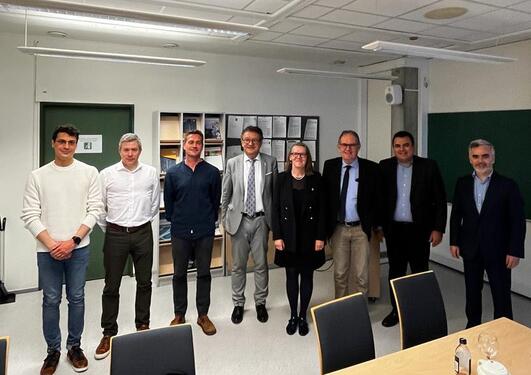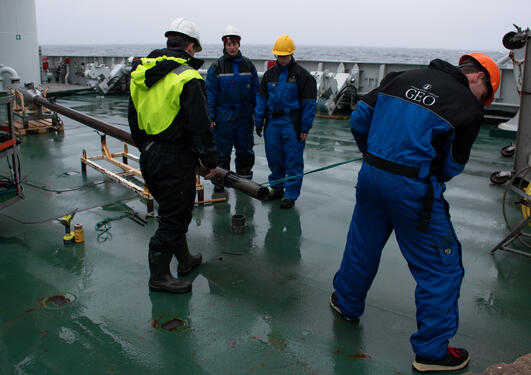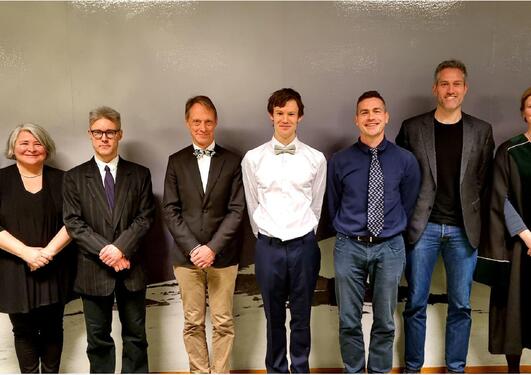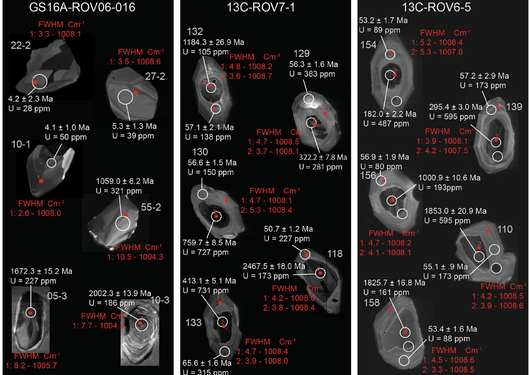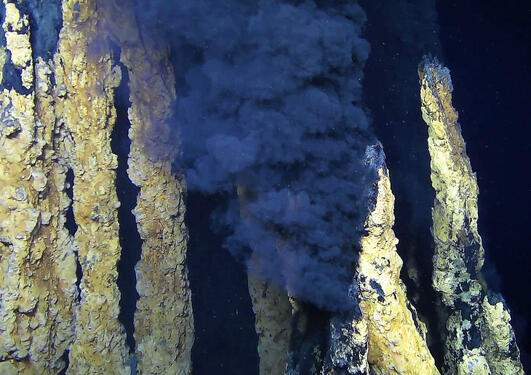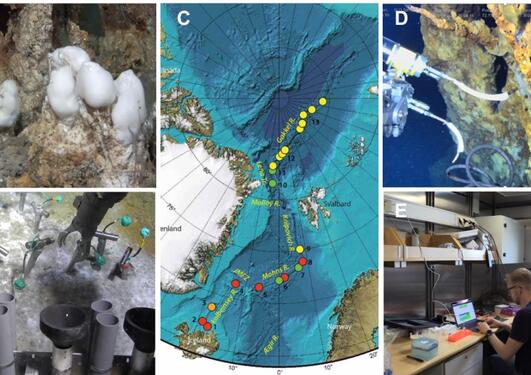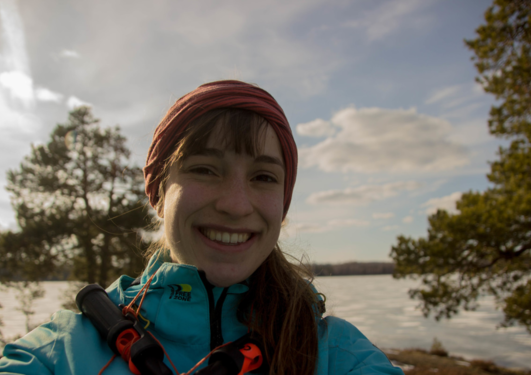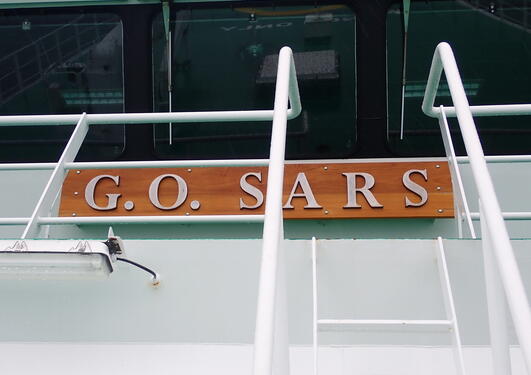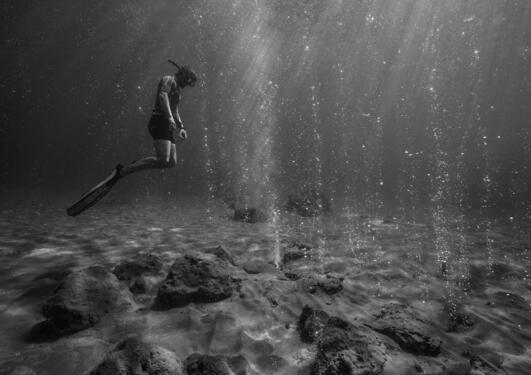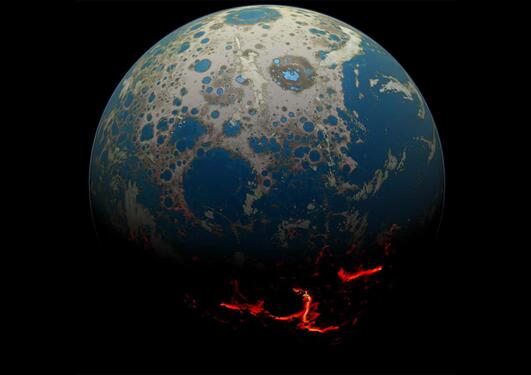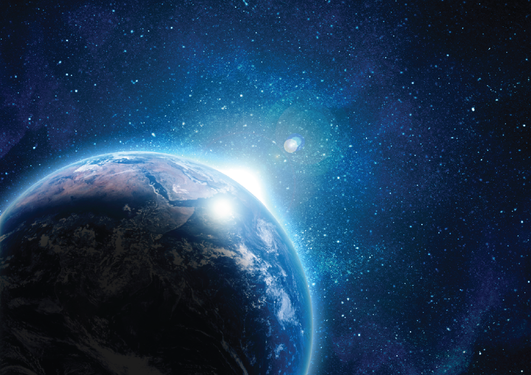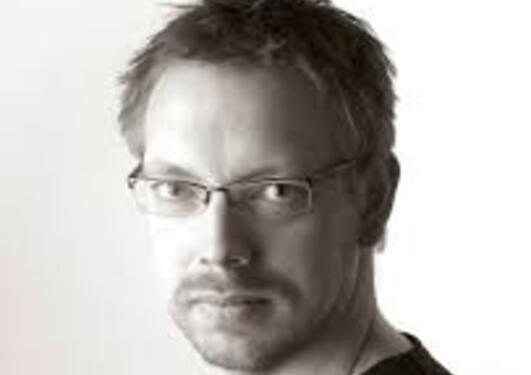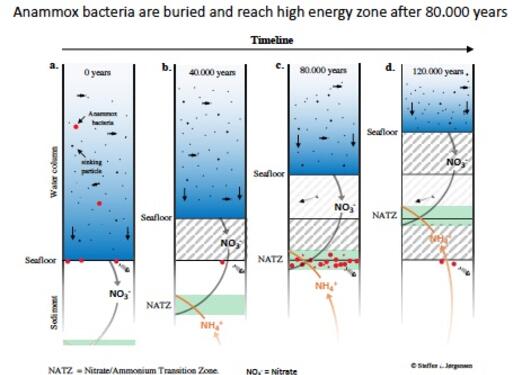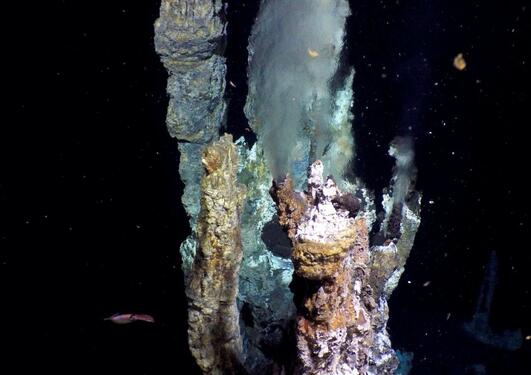News archive for Centre for Deep Sea Research
A recent article from Tor Einar Møller on exploring how microbes can shed light on ancient climate conditions has been featured on a SCIPOD episode.
Raman spectroscopy of zircon allows distinction between truly inherited zircon and those that may be introduced through sample processing.
When did Earth change from a water world into a planet with continents rising above sea level? Together with researchers from The Netherlands and Germany, associate professor Desiree Roerdink from the Department of Earth Science and Centre for Deep Sea Research has found that land appeared very early in Earth’s history – up to one billion years earlier than we previously thought.
A competence building project led by Pedro Ribeiro, a researcher at the Centre for Deep-Sea Research of the University of Bergen, will investigate if deep-sea mining on the Arctic Mid-Ocean Ridge can take place responsibly, avoiding serious harm to the environment.
Members of the Center have been onboard the Kronprins Håkon for an expedition to the Aurora vent field under the arctic ice.
Runar Stokke, researcher at the Center for Deep Sea Research, is now leading an international project that will aim at investigating the genetic diversity of microbial communities in the hydrothermal systems of the Arctic Mid-Ocean ridge.
The geomicrobiology laboratory starts the "My green lab" certification.
The Center for Deep Sea Research welcomes a guest student from the University of Utrecht.
As every year when summer starts, the Center for Deep Sea Research sets sails on the G.O SARS to investigate and sample the Nordic Seas.
Geophysical characterization of a shallow hydrothermal system by an international team of researchers.
Headlines for a researcher at the Center after EGU presentation
When we look at the sky and think "Are we alone?", there is no need to look only for planets receiving sun light.
A new project for the Center for Deep Sea Research financed by the Norwegian Research Council.
A new study from researchers from the Center for Deep Sea Research tells about a 80 000 year long powernap on the seafloor.
Two PhD students from the Center for Deep Sea Research have written an article for Aftenposten on the search for the origins of life.
Pages
- April 2024 (1)
- March 2024 (1)
- February 2024 (2)
- September 2023 (1)
- August 2023 (3)
- July 2023 (3)
- June 2023 (1)
- May 2023 (1)
- February 2023 (1)
- January 2023 (1)
- August 2022 (1)
- July 2022 (1)
- June 2022 (2)
- May 2022 (1)
- March 2022 (2)
- February 2022 (2)
- November 2021 (2)
- September 2021 (3)
- July 2021 (1)
- June 2021 (6)
- July 2020 (1)
- May 2020 (1)
- April 2020 (1)
- March 2020 (2)
- October 2019 (2)
- September 2019 (2)
- June 2019 (7)
- January 2019 (1)
- October 2018 (3)
- February 2018 (1)
- December 2017 (1)
- November 2017 (1)
- October 2017 (3)
- September 2017 (1)
- July 2017 (1)
- May 2017 (1)
- March 2017 (1)
